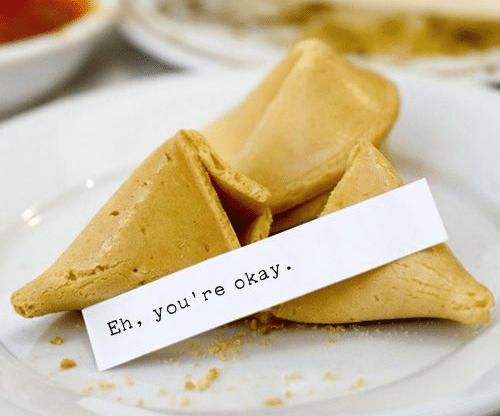Do you think you’re special? Don’t we all want to hear that we are special? What if your teacher or your boss tells you–you’re not special?
“You’re Not Special” was repeated nine times by Wellesley High School teacher David McCullough Jr. in his June 10 commencement address to the 2012 class of high school seniors.
These graduating teenagers had the privilege of attending one of the most academically rigorous high schools not only in the state of Massachusetts (America’s hub of top-ranking educational institutions), but also in the United States. McCullough bluntly told these teenagers the following:
“None of you is special, you’re not special, you’re not exceptional. 3.2 million seniors are graduating every year from more than 37,000 high schools across the United States.
“Americans come to love accolades more than genuine achievement. Achievement is not something that fall on your lap, because you’re a nice person or mommy ordered it from the caterer.”
“Selflessness is the best thing you can do for yourself. Make for yourselves, please for your sake and ours, extraordinary lives.”
McCullough’s speech–which has been viewed more than 1 million times on YouTube–has stirred a firestorm of controversy in the media and from the public.
Why? Well, American young people, typically the Generation Y/Millennials (ages 18-30) who grew up in a structured, over-scheduled world with helicopter parents who plan and pamper their every need, are repeatedly told–“you are special.” Over time, these so-called “Trophy Kids” have developed a sense of self so big that they are described as excessively self-centered with an oversized ego, according to recent scientific studies.
McCullough’s main point resonates with my Chinese upbringing–the notion that exceptional achievement depends on hard work, discipline, dedication. It also de-emphasizes the theme of “self” and emphasizes “community.”
“Special” 特别 in Chinese connotes exceptional or extraordinary.
I was never told by my parents or teachers that I was “special.” But I always felt “special” or “extraordinary” after I’d made extra efforts to study harder and get better grades, or after I’d gone the extra mile to go for the gold and win a medal. I also felt special when my extra efforts made my mom smile, my dad proud. All these “extras” mean something special to me, and my family. I learned that without being told I was “special,” it was up to me to discover how far I could go.
On the other hand, what I was never told–which I really admire in the American culture–was “yes – you can.”
I didn’t grow up with the positive encouragement of the classic American parenting mantra to their kids–“You can be anything you want to be!”
你认为自己很独特吗?相信大家都这么认为。也相信大家都喜欢被称为特别,独特,别致。那如果你的教师,或你的上司,忽然坦白地对你说,你根本就不特别;那怎样呢?
在韦尔斯利高中的六月十号毕业典礼时,教师大卫•麦克楼对2012年的毕业生总总用了"你并不特别"这句话九次!这可为什么呢?
You Are Not Special [中文字幕版]
http://www.youtube.com/watch?v=GfdhFFSlNnw&feature=g-logo-xit
这些青少年是一群优秀的学生,上的可是麻省州其中一个要求最高的高中;而如果麻省州的学校认第二的话,美国无校有资格认第一。可是麦克洛很简单地对他们说,
"你们自内没有一个特别的学生。你并不卓越,你并不优秀。美国每年有三十七千高中举行毕业典礼,有至少三点二百万学生在毕业:你们就是这几千万的学生之内的一小部分。
美国人最近越来越重视得奖和赞词,开始忽略真正的成功,争取的成功。它可不是一个要就有的奖金。它不会自己来找你。你不能凭着自己的人格而认为它归你是应该的。你也不能把它买回来。这是不可能的事。
无私就是你能做到最伟大的事。为了你自己,也为了大家;我请求你们追求非凡,寻找真正的成功。"
麦克洛的演讲已经在网上被发传至少一百万次,也在媒体和大众的脑海中惹出了个当时没预测到的争论。为什么呢?美国的青少年大多数是Y时代与两千年时代的孩子,年龄大约十八到三十岁。他们的成长环境非常次序,凡事都被父母安排和彩排得十全十美。他们这整辈子都听到家长对他们说,你很重要,你很特别,你是个非凡者。最近研究报道,这些"得奖者"迟早会因此拥有过大的自我,太过重视自己。
麦克洛的主题与我的华族教养很相似。卓越是由努力,次序,与用心争取的。并且,麦克洛说明,"我"其实根本都不重要,应该轻视它;"我们"其实才是主题。
华语之内,"特别"这个词代表优秀,卓越,超越。
我从来没听过教师或家长称我为"特别"。但是,当我专心读书过后而赢取好成绩,或勤劳的练过后凯旋而归,我总是感觉特别的骄傲,特别的。。。特别。当我母亲为我而高兴,当我父亲为我而骄傲是,我也感觉到骄傲,自豪。这些"多余"的东西对我与我家庭来说就是真正的特别,的卓越。我就是因此学到自己的卓越其实不需要别人的赞语;能走多远其实是由自己决定。
可是。。。美国社会我最欣赏的观点是个我成长中从来没听过的劝告:"没关系;我相信你。你做得到。"我父母从来没对我说过这两句话,可是相信美国之内的青少年大多数都已经听到厌了!
我非常赞成麦克洛他的主题,因为他所推荐的可是东方和西方最好的社会主见:华人的努力性,和美国人的想法,合而为一。我们都有自己的别致,都能使用那个别致来夺回超凡。我们都可以 ﹣ 不只,我们都必须 ﹣ 再接再厉,提出十分之十一的贡献,真正的发表我们的本领。这是对自己的责任,也是对大家的义务。


